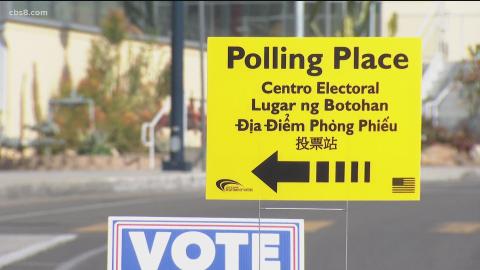<p></p>
<p>So far this year, 18 states have enacted 30 laws that one side of the partisan aisle says will make it <a href="https://www.brennancenter.org/our-work/research-reports/voting-laws-rou…; target="_blank" rel="noreferrer noopener">harder for Americans to vote</a>, and the other side of the partisan aisle says are necessary to ensure election integrity. </p>
<p>These “voting rights” bills range from limiting people from providing water or snacks to voters standing in line at polls, to requiring voter identification and limiting mail-in voting options.</p>
<p>No doubt, there are arguments for and against each one of these bills. </p>
<p>In general, arguments on the left tend to put almost exclusive value on ease-of-access and arguments on the right tend to put almost exclusive value on election integrity, but most political observers understand the self-interest of each party focusing on one side of the debate or the other.</p>
<p>This is a “voting rights” debate born out of division and self-interests. By its very nature, the debate cannot be reconciled on its own. </p>
<p>But a growing coalition in San Diego is cutting right past the national narrative.</p>
<p>More Choice San Diego is a coalition of left, right, and independent-learning organizations and activists that believe there is a major opportunity to expand opportunities for voters, not politicians on one side of the aisle or another. </p>
<p>More Choice San Diego proposes, most simply, to advance more than two candidates from the primary election, giving more candidates a chance to participate in the political conversation and giving voters more choices in the general election.</p>
<p>With more than two candidates to choose from, the voters would be allowed to “rank” their candidates in the general election from their most to least favorite. The winner would be the candidate who has the most support among all of the voters, not necessarily the candidate who wins a plurality of the vote, ensuring that the elected official is accountable to the broadest majority of the electorate.</p>
<p>“We’re proud to be on the side of the voters,” says Lori Thiel, coalition founding partner and League of Women Voters, San Diego vice president. “As a 100-year-old nonpartisan organization, the League has a history of centering the voter in our priorities. We encourage electoral methods that provide the broadest voter representation possible, are expressive of voter choices, and promote sincere voting over strategic voting. RCV fulfills these priorities and more.”</p>
<p>The nonpartisan More Choice San Diego coalition is composed of more than a dozen local and national voting rights organizations, including the San Diego League of Women Voters, FairVote, RepresentUS, MoGo, Independent Voter Project, and many more.</p>
<p>“When voters are given more choices, there is more electoral competition. When there is more competition, more voices matter. And when more voices matter, we have a more representative democracy. This is not only good for voters, but for candidates and even political parties,“ says Chad Peace, legal strategist for the Independent Voter Project. “If we think politics has become too divisive, let’s pay attention to this voting rights issue because it is bringing people together.”</p>
